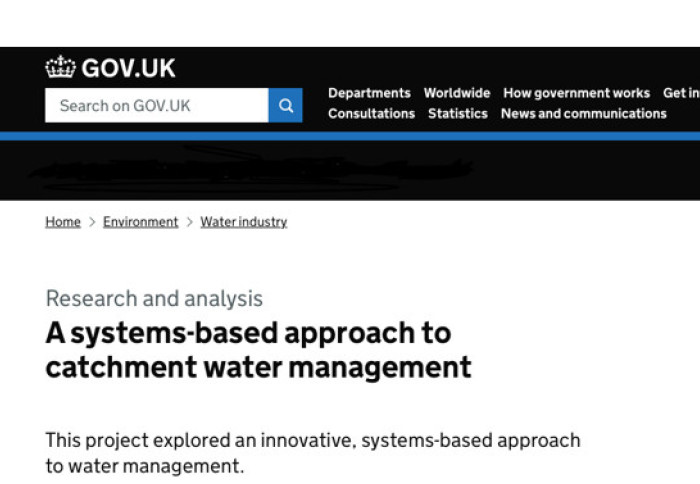Dr Ana Mijic authors report on A systems-based approach to water management

CSEI Co-Director Dr Ana Mijic authors report on A systems-based approach to catchment water management
The report was published this week. The document lays out the outcomes and recommendations from a project that saw a collaboration between Dr Ana Mijic (Centre for Systems Engineering and Innovation, Imperial College London), the Environment Agency, the Royal Academy of Engineering through a National Environment Research Council (NERC) Innovation Placement1.
The project explored an innovative, systems-based approach to water management to help organisations involved in water planning and management understand how different parts of the water system interact so to develop ways of managing the water environment as a whole. The research is of particular significance as it will help organisations bring about multiple benefits while avoiding undesired outcomes.
The case study explored in the research illustrated analytical potential in relation to:
- Identifying systemic drivers.
- Opportunities for systemic interventions and ‘what if’ analysis, including unintended consequences.
- Mitigation of planned development.
- System monitoring and measurement.
- Identifying system actors and responsibilities to co-ordinate coherent system management.
Key recommendations in the report include the following:
- There is the need for water planning coordination between sectors such as water and housing.
- The role of environmental services, and in particular, surface water quality, is proposed as an indicator that could be used to inform land and infrastructure planning, including coordinating water supply and wastewater infrastructure design and operation.
- The role of urban water demand management could significantly contribute to optimising overall system performance.
- Systems maps should be used as a starting point for open discussion about the water management system and to communicate key feedbacks that may lead to unintended consequences.
- There is a significant role of activities resulting from service and industry sectors, and tourism in particular, in defining the water management issues and informing possible measures for water pollution management.
- Most infrastructure and technological solutions, unless implemented across the system as a whole, will be limited in solving the systemic causes of the lake water pollution.
- Infrastructure schemes such as wastewater recycling and reuse, as well as providing timely and relevant information about consumption and the state of the local environment to local stakeholders, residents and visitors, could provide significant systems-level water quality benefits
The project was funded by a NERC Innovation Academic Placement and hosted by the Environment Agency’s Chief Scientist’s Group.
For further information on the report contact Jeni Giambona, j.gimbona@imperial.ac.uk.
To learn more about our research visit our Research Areas page.
To join us and help us shape and push our research vision, see our Get Involved page or email our Research and Engagement Manager Jeni Giambona, j.giambona@imperial.ac.uk.
Sign up for our Newsletter to be notified of our future events and research highlights.
Article text (excluding photos or graphics) © Imperial College London.
Photos and graphics subject to third party copyright used with permission or © Imperial College London.
Reporter
Jeni Giambona
Department of Civil and Environmental Engineering